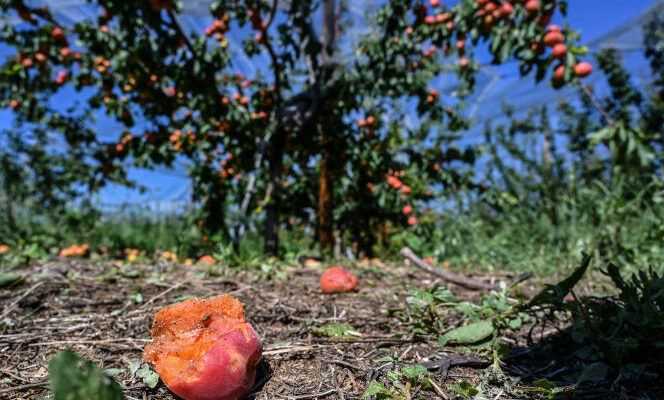Raw materials. The nights give arborists a cold sweat. A week after the polar tongue episode slipping over France, the tension has not yet subsided. The eyes remain riveted on the level of mercury. While candles and straw bales were still set ablaze to fight the bite of the frost, farmers were already turning on the hazard lights, calling on the government to come to the bedside without delay.
The apricot tree was in the front line to shake up the coconut palm. The images of trees with branches covered with frost were, it is true, blood-curdling. But is it possible to take stock of this dark meteorological episode? The exercise is arduous, concede those concerned. Farmers are the first to repeat it: as long as the harvest is not done, the forecasts remain approximate.
Apricot, however, is one step ahead of peaches, nectarines, grapes, apples and other pears. Especially since, strengthened by the heat stroke of early April, the orange fruits were already formed. Even if the arrivals of apricots on the stalls are not expected before June, a first inventory was therefore drawn up on Tuesday, April 13.
“We hope to have 40% apricot harvest nationally. But the situations are very heterogeneous according to the regions, Auvergne-Rhône-Alpes being the most affected, followed by PACA [Provence-Alpes-Côte d’Azur]. Occitania is relatively spared ”, estimates Bruno Darnaud, president of the association of producer organizations (PDO) Peaches and apricots of France.
Scarcity effect
This expected drop of 60% is based on a production potential of 150,000 tonnes. A level reached, at best, every other year, in 2015 and 2017, for example. The apricot plays yoyo with the weather. A year ago, the small stone fruit was scarce. “ In 2020, French production had fallen below the 100,000 tonnes mark, down 45% ”, specifies Mr. Darnaud. The frost, the usual spoilsport, had cut off fruitful hopes, not to mention a spring not very conducive to full flowering.
However, 2020 will not be remembered as a bad vintage for the industry. The weather had also played tricks on the Spanish and Italian competitors. As a result, Iberian apricots crossed the border in a dribble and did not reduce the prices of stewed apricots. Effect of scarcity, the price of the fruit has increased by more than 40% over one year, according to the statistical services of the Ministry of Agriculture. The consumer had to pay 4.50 euros for his kilo of apricots, of which 2 euros to 2.20 euros landed in the pocket of the farmer. What to compensate for the smaller volumes. Obviously, this global vision ignores the difficulties of arborists whose crops have been cut or even wiped out.
You have 7.66% of this article left to read. The rest is for subscribers only.
